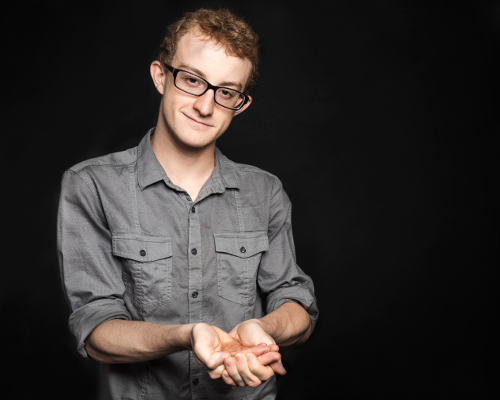Safe water for all: Purdue student on a mission to improve drinking water in the Dominican Republic
October 26, 2016

Photo by: Charles Jischke
WEST LAFAYETTE, Ind. -- For Purdue University senior Jake Hawes, career inspiration comes in the form of contrast.
The environmental and ecological engineering major had the opportunity to travel to two locations that couldn’t be more different; Stockholm, Sweden and Las Canas, Dominican Republic. In Stockholm, he noted highly advanced sustainability efforts, systems far ahead of what we have in the U.S. While in the Dominican Republic, a developing nation, it was urgent and fundamental needs commanding attention.
"You can’t talk about environmental sustainability and leave out the social and economic repercussions of your actions,” Hawes said. “Centralized urban development isn’t the whole picture. I’d like to work in urban villages to see how new technologies can improve livelihoods, communities and health outcomes.”
In December, Hawes will return to Las Canas. He’s part of Purdue team committed to bringing safe drinking water to the area. The group is using sand filtration, low-pressure membrane filtration and chlorination to create a potentially life-saving water system at a Las Canas primary school. According to the World Health Organization, some 842,000 people die each year from preventable waterborne illnesses.
“Every single one of those people represents someone who could profoundly change their community,” Hawes said emphatically. “When we implement systems, we’re not only providing safe water and better health outcomes, we’re providing an opportunity for people to work more because they’re not sick, for kids to go to school longer because they’re not sick or having to collect water in other ways, for the community to take a step forward both socially and economically.”
Hawes and the other team members are currently tweaking several parts of the system design to better fit the island culture. Notably, they’re trying to improve the water taste.
“They’re really sensitive to chlorine and hardness,” Hawes said, of Las Canas residents. “In a lot of cases, they would prefer to drink what we would consider to be unsafe water over water that has a bad taste and that’s a serious problem. If you’re building a system and people aren’t drinking from it, there is little point in building the system."
Hawes says the experience drove his thinking in new and unexpected directions, something he’s trained for as a student in both the Honors College and Environmental and Ecological Engineering. While the math, engineering and design worked, he quickly realized it didn’t work for the citizens using it.
“Jake is a well-rounded, holistic thinker who has a keen ability to listen and respond to the needs of others,” Rhonda Phillips, dean of the Honors College said. “It’s inspiring to see him excel in his field of study, while tapping into his interdisciplinary course work and undergraduate research to solve problems.”
When Hawes returns to Las Canas, he’ll be installing a rainwater catchment system to transition the existing program to rainwater and cut down on water hardness. He is also working with Professor Ernest Blatchley from the College of Engineering on disinfection technologies that could be used in the Dominican Republic to reduce the need for chlorination.
“Jake assimilates fundamental information quickly and is able to rapidly translate basic principles to practical applications,” Blatchley said. “He is also able to incorporate principles from other disciplines, which is an attribute that makes him a highly effective team player.”
“It’s been really inspiring for me to see the transition from something I was working on in the lab—and am still working on—to actually talking about practical implementation,” Hawes said. “If we can improve the livelihoods of the people we’re working with, that’s pretty profound to me.”
Writer/Media Contact: Lindsay Perrault, lindsayperrault@purdue.edu
